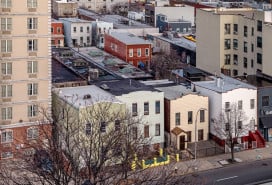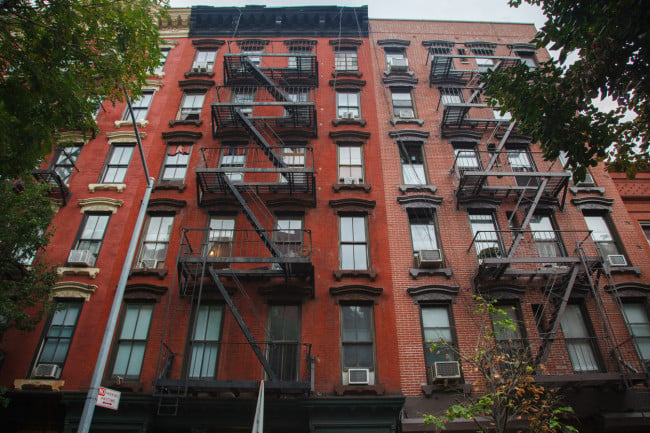Ask Altagracia: My landlord has been overcharging me for my rent-stabilized apartment. How do I recover what I'm owed?
- You’ll need an attorney to navigate the complexity of an overcharge claim
- Requesting your rent history from DHCR is the first step in the process

If you decide to stop paying rent you risk being sued in housing court, however your defense would be that your apartment is illegally deregulated.
iStock
My landlord has been overcharging me for my rent-stabilized apartment. How do I recover what I'm owed?
The route you take for an overcharge claim will largely depend on the time and money you have to pursue your landlord and your willingness to be sued if you stop paying rent. Legal representation is crucial because the rent-stabilization rules have changed over time and you need to know the history of the laws to accurately determine an illegal deregulation.
“It can be very complex in terms of doing the math but also investigating whether rent increases in prior years are legitimate,” said Altagracia Pierre-Outerbridge, attorney and founder of Outerbridge Law representing residential tenants, condo owners, and landlords.
Figuring out your rent history
Requesting your rent history from the New York State Division of Housing and Community Renewal is the first step in this process. “It’s the Rosetta Stone of administrative records for a rent-stabilized unit,” Pierre-Outerbridge said.
The document has details about the lease terms, tenants, and legal regulated rents for the apartment going back to the 1980s. This is information provided by the landlord and it’s not audited or checked by any government agency.
Each year, rent increases for regulated apartments are set by the Rent Guidelines Board—somewhere in the range of zero to 5 percent.
“A rent history will typically look like yearly or two yearly increases in that percentage range,” Pierre-Outerbridge said. However, an increase of more than 5 percent might be legal and the document should show the reason for the higher rent.
For example, if a tenant moved out, the landlord used to be able to raise the rent by 20 percent.
“This was eliminated in 2019 with the passage of rent reforms in the Housing Stability and Tenant Protection Act but would have been allowed prior to that,” Pierre-Outerbridge said. In addition, substantial upgrades to the building enable a landlord to increase the rent by a proportion of the amount spent, divided among the units, and spread out over time.
Filing an overcharge claim
There is currently a six-year statute of limitations for overcharge claims. “This means you won’t get compensation for overcharged rent paid more than six years ago,” Pierre-Outerbridge said. However, in terms of evidence of an overcharge, you can use rent history going back to June 14th, 2015, which is four years before the Housing Stability and Tenant Protection Act went into effect.
There is what’s called a presumption of willfulness for overcharges within this time period. “This means it is viewed as deliberate and as a result, landlords are subject to treble damages,” Pierre-Outerbridge said. (However, landlords who mistakenly deregulated apartments while receiving J-51 tax benefits are an exception.)
If you can show the rent history is a pure fiction and is intended as part of a fraudulent scheme, then you can use evidence going back farther than 2015 to prove your case.
However, Pierre-Outerbridge cautioned, “a fraudulent scheme is very hard to show.” If successful, your new rent would be set using what’s called the default formula: The lowest rent in your building for a similar-sized apartment paid as of June 2015.
With any overcharge case, the aim is to figure out what the rent should be in comparison to what you’ve paid. The overcharge is the difference between these numbers. Typically, this involves looking back at the rent as far as the rules allow and establishing what the rent would be if rent increases had been applied accurately under the law.
Litigation routes
Overcharge cases can be fought in State Supreme court, housing court and through DHCR. Picking the route you take is a strategic determination you’d make in consultation with an attorney. “A major factor is whether you want to stop paying your rent versus being willing to be sued in housing court,” Pierre-Outerbridge said.
Taking your case to State Supreme court is expensive and requires a lot of time and effort to ensure you have the necessary evidence.
“It’s usually not worth it unless you are part of a class action,” Pierre-Outerbridge said. Alternatively, you can stop paying your rent and risk being sued in housing court by your landlord for non-payment. Your defense would be that your apartment is illegally deregulated.
The third option is an administrative complaint with DHCR.
“This is slow and can take years but it is much cheaper because it is all by mail,” Pierre-Outerbridge said. A successful DHCR proceeding will end with an enforceable judgement and can also award attorneys fees. If found to be at fault, the landlord is also liable for treble damages.
Altagracia Pierre-Outerbridge, Esq. is the owner of Outerbridge Law P.C, focusing primarily on tenant representation. The firm represents all sides in landlord-tenant litigation and transactional matters such as month-to-month holdovers, nuisance cases, licensee cases, harassment claims, repair cases, tenant buyouts, succession claims, DHCR overcharges and rent reductions and more. Pierre-Outerbridge has 15 years of experience litigating in Supreme, DHCR, and Housing Court. To submit a question for this column, click here. To contact Outerbridge Law P.C. directly, call 212-364-5612 or 877-OUTERBRIDGE, or schedule a meeting today.
You Might Also Like



























